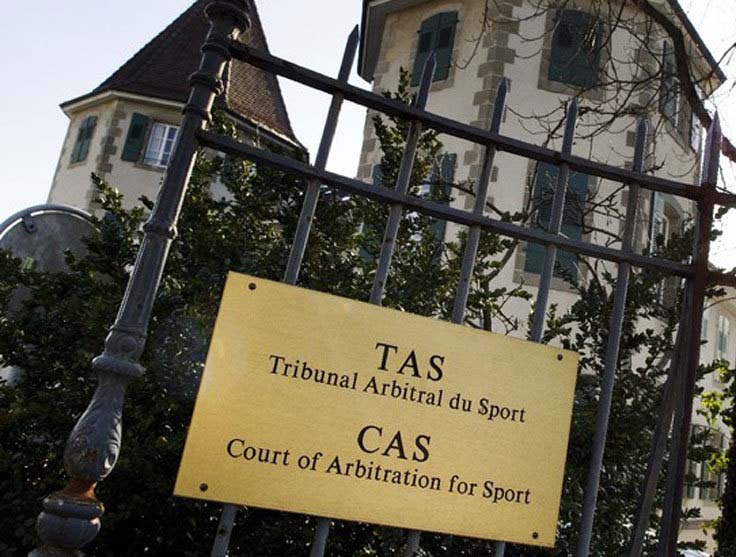On September 28th, the Court of Arbitration for Sport (CAS) adjourned the Kamila Valieva doping case for six weeks. The Valieva case is arguably the highest profile doping case this century. CAS is effectively the “Global Supreme Court of Sports” for all sports disputes, including doping adjudication disputes like the Valieva case.
In its media release announcing the adjournment, CAS said it “ordered the production of further documentation” and “allow[ed] the parties time to consider additional evidence.” This will be followed by two days of further arguments on November 9th and 10th in Lausanne, Switzerland at CAS’s headquarters, closing submissions by the parties, followed by a written decision from the court a few weeks later.

Predictably, the US Anti-Doping Agency (USADA) CEO Travis Tygart erupted. Tygart told USA Today’s Christine Brennan that the court-ordered adjournment “reeks of just further manipulation by the Russians.” [sic].
Tygart did not respond to our question asking if his term “the Russians” means RUSADA (The Russian Anti-Doping Agency) or something else. By leaving the term “the Russians” open to interpretation, perhaps deliberately, recipients of Tygart’s message might conclude he means the Russian government as a whole, ethnic Russians in general, or something else that the reader imagines. Replace the word “Russians” with “Jews” in Tygart’s statement and you might see the danger of his imprecise language more clearly. Especially at the current geopolitical moment.
Even prior to CAS’s adjournment, Tygart told USA Today that “the entire process, including the secrecy and the unnecessary delay, has essentially defeated justice.” However, publicly commenting on a “pending case” is a violation of the WADA (World Anti-Doping Agency) Code, specifically §14.3.6.
It isn’t the first time Tygart violates the doping code by publicly commenting on a pending case, and also not the first time he does so in the Valieva case. However, Tygart’s latest comment go a step further and call into question CAS’s legitimacy by claiming that the court was manipulated by “the Russians” last Thursday. And Tygart’s use of the word “further” implies that he thinks they have been manipulated before.
The fact that Tygart makes statements directly to USA Today’s Christine Brennan, and only to Brennan, rather than through press releases, is a subject we may return to in a later article.

The Valieva hearing is closed to the public, and the parties to the case are bound by confidentiality. However, confidentiality appears to have been breached in this case since Tygart only could blame “the Russians” for the court-ordered delay if he knew what transpired in the hearing room. But how could Tygart know what transpired during the hearing when USADA is not a party to the case and the parties are bound by confidentiality? Who told him what happened in the hearing room? Tygart did not respond to questions about that aspect of his incendiary “further manipulation by the Russians” comment.
Since WADA is a party to the case and did have representatives present in the hearing room, we wrote to WADA spokesman James Fitzgerald. We explained that given Tygart’s apparent knowledge of what happened in the hearing room, we unfortunately had to ask WADA: has any WADA employee, agent, intermediary or similar shared with any USADA employee, agent, intermediary or similar information about what transpired at last week’s CAS hearing in the Valieva case?
Fitzgerald responded that he had “no comment” in response to our question.
“As the case you refer to [the Valieva case] is still pending, I have no further comment to make at this time,” Fitzgerald wrote to us last April. WADA’s “pending case” reason for not being able to comment is confirmation that also USADA may not comment on this ongoing case since both USADA and WADA are bound by the same aforementioned prohibition in WADA Code §14.3.6.
We also asked both WADA and USADA the same question: has USADA sought guidance from WADA on the interpretation of §14.3.6 (=public comments on pending cases prohibited) and if so, what did WADA say? Fitzgerald responded “no comment,” and neither Tygart nor USADA Media Relations responded at all.
If the doping code is repeatedly violated by USADA and hearing confidentiality breached, the public’s faith in the adjudication process may be undermined. They may conclude that the anti-doping movement isn’t about doping anymore.
As we wrote in December of last year: USADA receives more than half of its approximately $30 million per year budget from the US government. Given this fact, USADA’s repeated public attacks on US adversaries (Russia), attacks that violate the WADA anti-doping code, while simultaneously turning a blind eye to state-sponsored doping by US allies (Norway), may raise questions in the public mind about USADA’s true agenda. Is it an anti-doping agenda or is it a US foreign policy agenda?
As always – Lacrimonia.Com reports and our readers decide. Follow us on Facebook to receive notifications when we publish articles.


